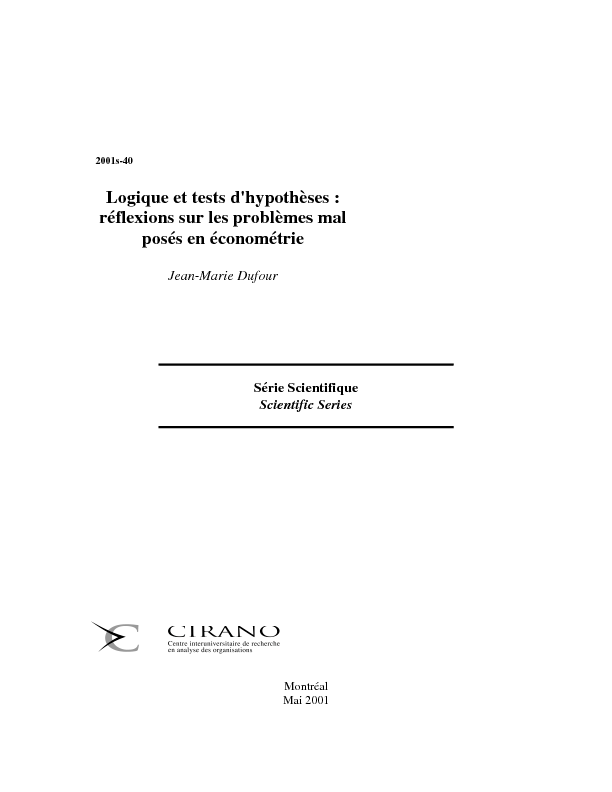Logiques et tests d'hypothèses : réflexions sur les problèmes mal posés en économétrie
In this text, we review recent developments in econometrics from the viewpoint of statistical test theory. We first review some basic principles of philosophy of science and statistical theory, emphasizing parsimony and falsifiability as criteria for evaluating models, test theory as a formalization of the falsification principle for probabilistic models, and the logical foundation of basic notions in test theory (such as the level of a test). We then show that some of the most frequently used statistical and econometric methods are fundamentally inappropriate for the problems and models considered, while several hypotheses, for which test procedures are commonly proposed, are not testable at all. Such situations lead to ill-defined statistical problems. We analyze several cases of such problems: (1) building confidence intervals in structural models where identification problems may be present; (2) the construction of tests for nonparametric hypotheses, including procedures robust to heteroskedasticity, non-normality or dynamic specification. We point out that these difficulties often originate from the ambition to weaken regularity conditions typically required by statistical analysis, and from an inappropriate use of asymptotic distributional theory. Finally, we underscore the importance of formulating testable hypotheses and models, and of developing econometric methods with provable finite-sample properties.
[ - ]




